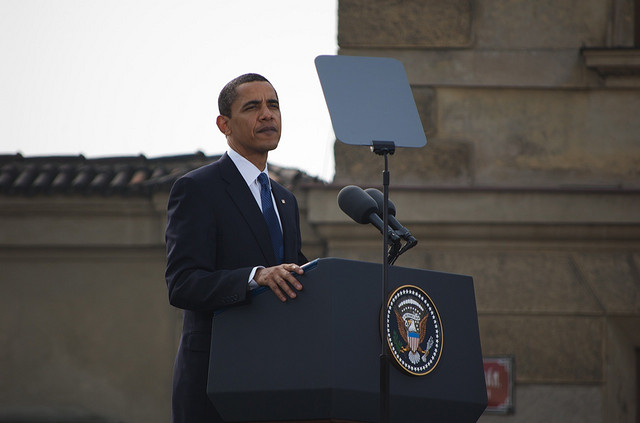 Because I’m not prone to ‘all or nothing’ thinking, I’ve never subscribed to the view that Australia can’t advance a sensible agenda for arms control because of our alliance relationship with the United States. But that appears to be the position of Tim Wright, who rather admires the disarmament credentials of Mexico and Chile at the same time dismissing Australia’s approach because of our hosting of the Joint Facilities and other bomb-snuggling behaviour. In this reasoning, nothing short of a nuclear-weapon free defence posture is acceptable, along with a total ban on nuclear weapons, thus making it possible for us to join progressive Latin Americans and New Zealand.
Because I’m not prone to ‘all or nothing’ thinking, I’ve never subscribed to the view that Australia can’t advance a sensible agenda for arms control because of our alliance relationship with the United States. But that appears to be the position of Tim Wright, who rather admires the disarmament credentials of Mexico and Chile at the same time dismissing Australia’s approach because of our hosting of the Joint Facilities and other bomb-snuggling behaviour. In this reasoning, nothing short of a nuclear-weapon free defence posture is acceptable, along with a total ban on nuclear weapons, thus making it possible for us to join progressive Latin Americans and New Zealand.
We should be clear what this approach would actually mean in terms of alliance relations with the United States. Preventing access to US ships and aircraft because they might be carrying nuclear weapons would bring us to an immediate crisis in alliance relations, probably serious enough to break the relationship. New Zealand’s ban on port access led to an almost 30 year freeze in defence relations. That rift is only just being repaired now and the port access question (of US ships visiting New Zealand, but not the other way around) remains unfinished business. New Zealand might have been independent and nuclear free during the freeze, but it was also mostly inconsequential in global security terms, including on disarmament and had only a limited effect on regional security matters. Australia would not get off so lightly, not least because we’ve worked hard to make the alliance closer in recent years.
A nuclear free approach would also lead to the closure of the Joint Facilities and, while that would celebrated by anti-nuclear campaigners, the effect of closing the joint facilities would be to make the Asia-Pacific much less secure. That’s because we and the US would have lost access to critical information about missile launches—an essential component of regional stability. Pyongyang would be delighted because of the greater potential to test its weapons without us understanding the results. If our anti-nuclear posture caused a break in the alliance relationship, we’d find our defence capabilities severely eroded. Blinded by lack of access to intelligence reporting, crippled by lack of access to weapons systems and their supporting infrastructure and weakened by no longer being able to assess our military capabilities against those of the US, Australia would find itself a significantly less influential player in regional security. An Australian government planning a go-it-alone security policy would need to spend billions more on defence than is currently the case, and no realistic amount of money can hope to replicate, for example, US satellite constellations for communication and intelligence gathering. We could be nuclear free but only at the price of turning ourselves into the East Timor of middle powers—about as relevant to Asian security as, well, Mexico or Chile.
That’s the ‘self-interested’ case for maintaining the alliance and the rather-limited obligations it puts on Australia to cooperate with America’s nuclear capability. But there’s an equally powerful case to say that nuclear weapons, and in particular the extended nuclear deterrence the US offers its allies, remains a key component of regional stability. Until the golden day arrives when the world’s nuclear weapons powers all agree to openly and verifiably disarm, Australia has a compelling interest in the US remaining a benign nuclear power. An America that doesn’t extend nuclear deterrence in Asia will most likely generate a nuclear armed Japan and South Korea and an even faster and more competitive conventional arms race in the wider region. Extended nuclear deterrence is, in other words one of the best bulwarks against nuclear proliferation. In a world where nuclear proliferation is constrained there’s room for consequential countries like Australia to pursue nuclear arms control measures which put further constraints around the use and uncontrolled development of such weapons. Nuclear disarmers should be careful what they wish for.
Peter Jennings is executive director of the Australian Strategic Policy Institute. Image courtesy of Emilio Bellu.

